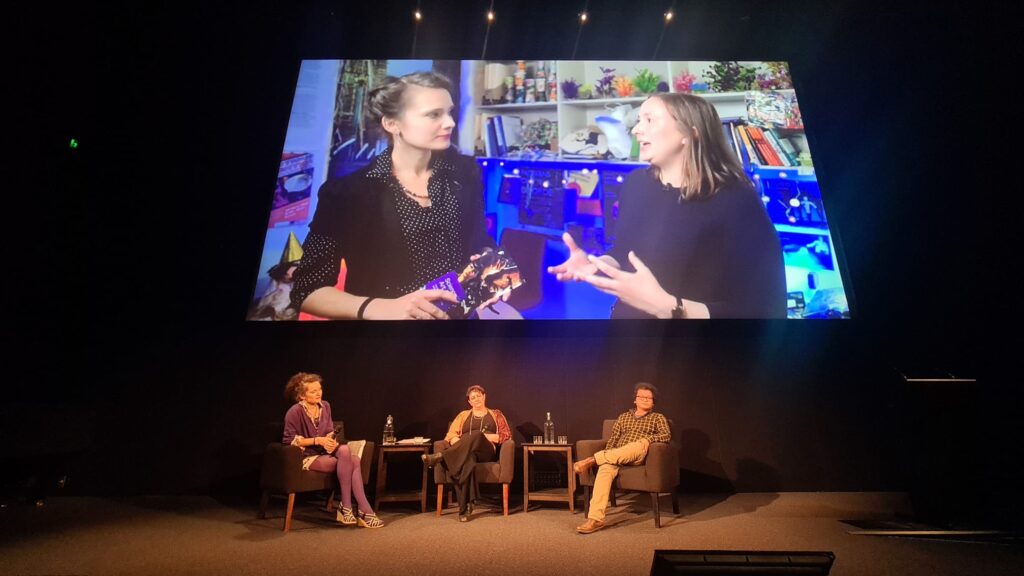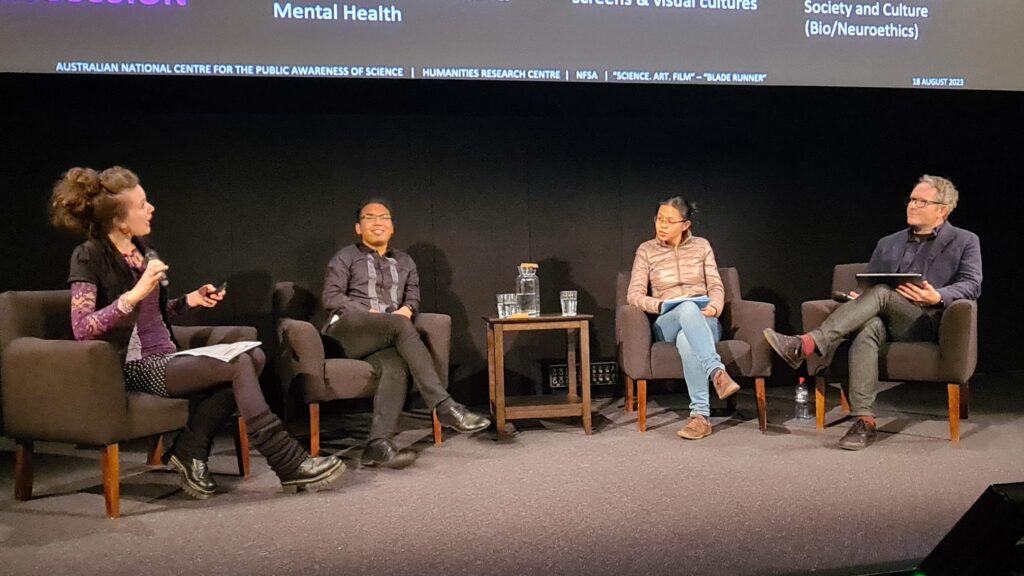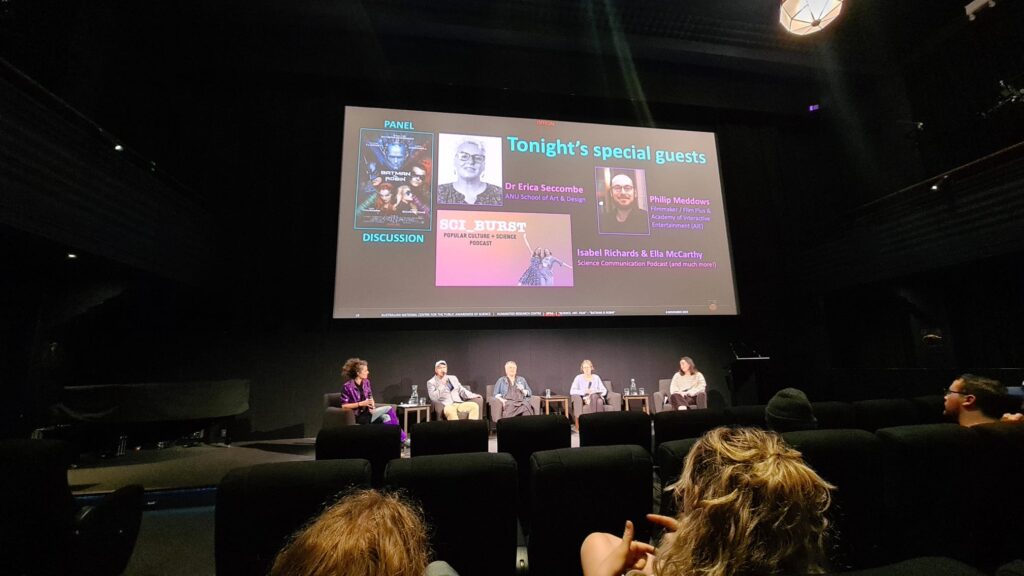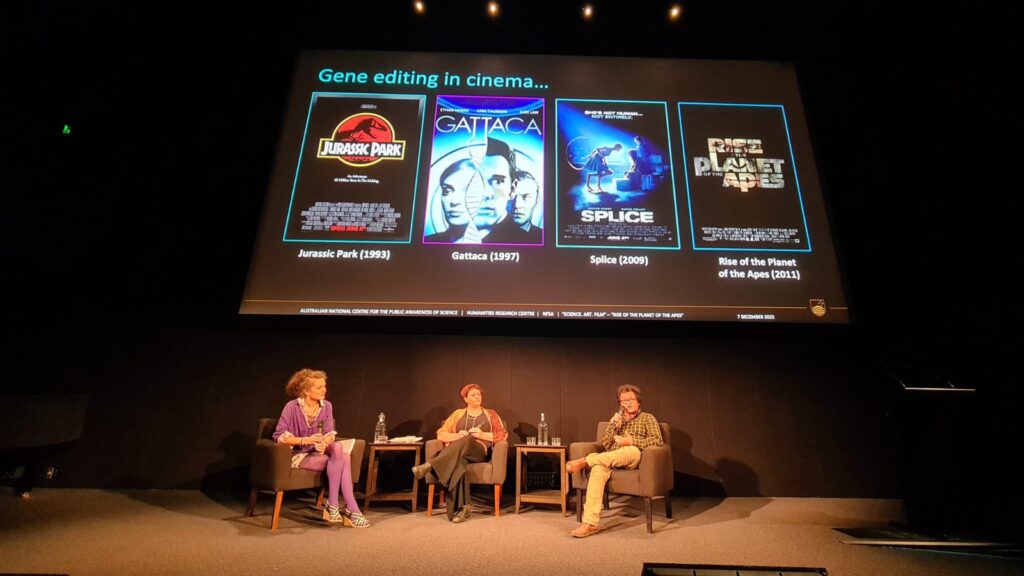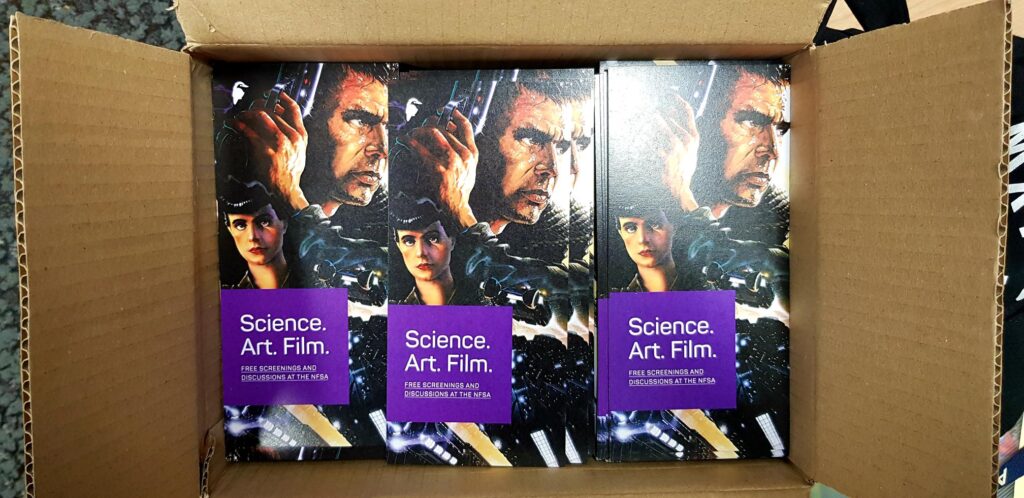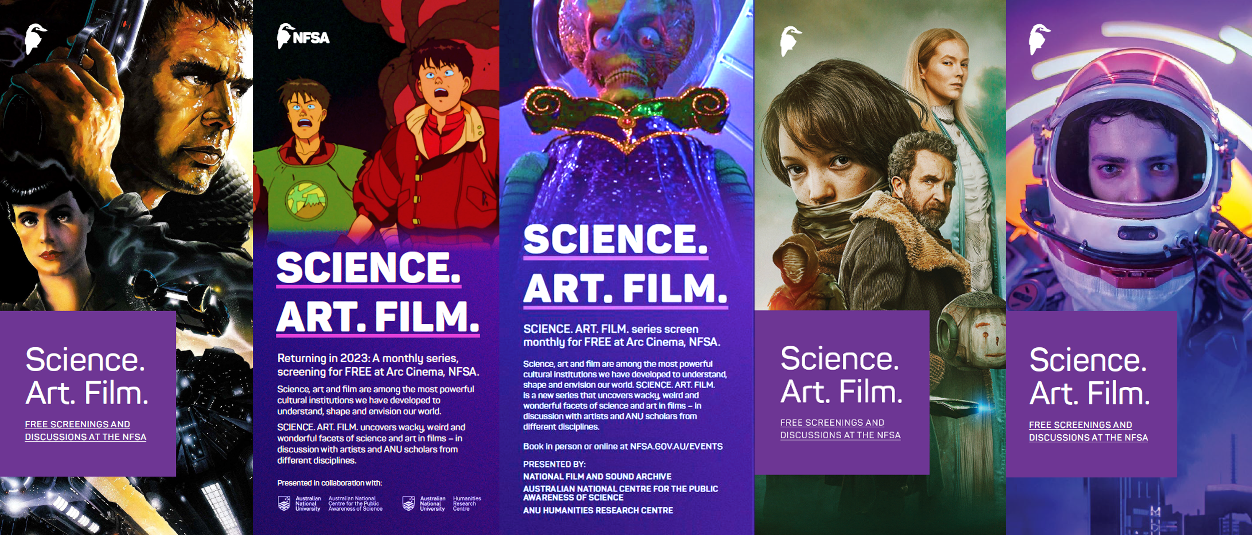
Science, art and film are among the most powerful cultural institutions we have developed to understand, shape and envision our world. Discover what scientists think about the cultural meanings of science and explore what artists see in films about art! SCIENCE. ART. FILM is a new series that uncovers wacky, weird and wonderful facets of science and art in films – in discussion with artists and ANU scholars from different disciplines.
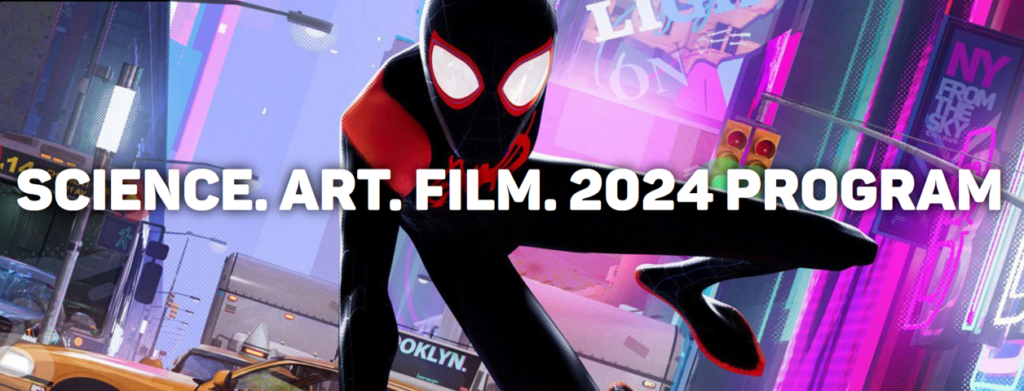

The brand-new program of Season 5 of “Science. Art. Film.” is now online! — Check it out and reserve your seats here!
Blade (1998) + Panel – Thursday 15 August, 6pm (Science Week)
Spider-Man: Into the Spider-Verse (2018) + Panel – Wednesday 18 September, 6pm
The Thing (1982) + Panel – Wednesday 9 October, 6pm (Earth Science Week)
Crimes of the Future (2022) + Panel – Wednesday 6 November, 6pm (supported by ANU’s Synbio Initiative)
2067 (2020) + Panel – Wednesday 27 November, 6pm
This was our “Science. Art. Film.” series in Semester 1 (2024)!
With our screening of Chappie in June, the “Science. Art. Film.” series has reached 20 film screenings! A huge thanks to everyone who has made this milestone possible — to all our attendees through the seasons, our panellists from different disciplines, and especially to the National Film and Sound Archive of Australia for being the home of the “Science. Art. Film.” series (and for even lighting up the theatre in neon purple for us!).
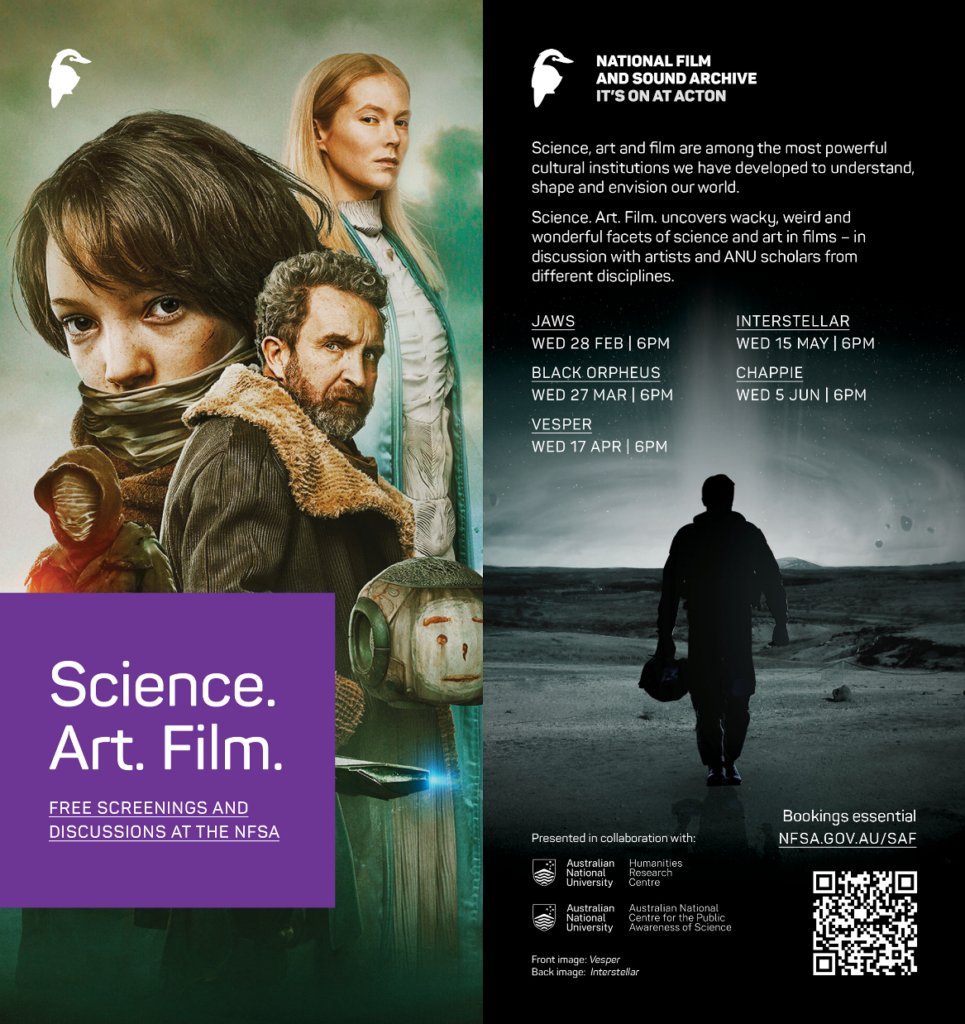
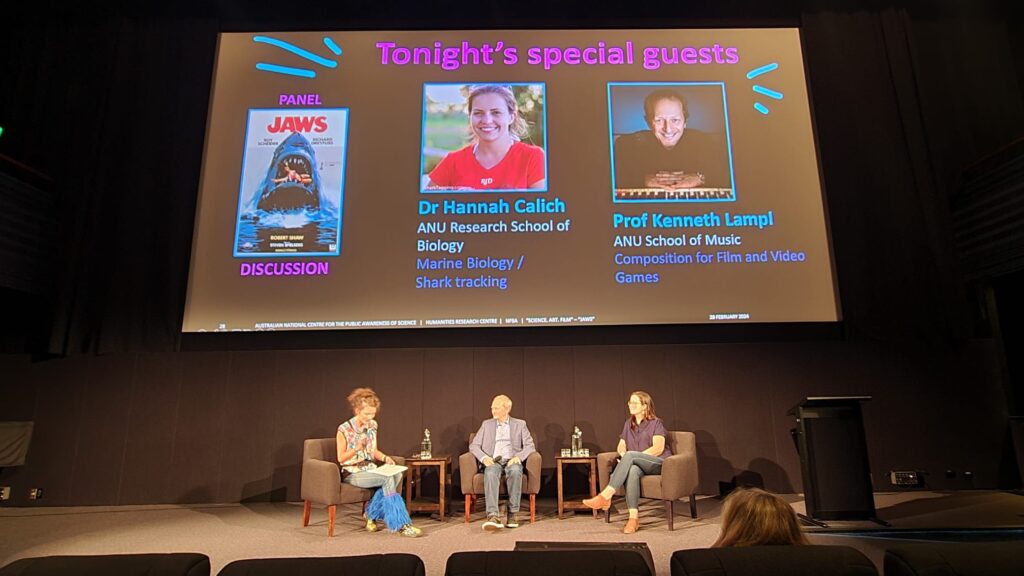
Billed as ‘The terrifying motion picture from the terrifying No. 1 bestseller’ Jaws has indelibly shaped the way many of us view sharks. The great white from Steven Spielberg’s early masterpiece has become one of the most enduring and frightening villains in thriller history. To escape this one, ‘…you’re gonna need a bigger boat’.
However, sharks don’t deserve this vicious reputation. Both Spielberg and Peter Benchley, author of the 1974 book, have expressed regret for the negative impact of these works of popular culture on shark numbers, which plummeted due to fishing for sport in the years after their release. According to the International Union for Conservation of Nature’s Red List of Threatened Species, more than a third of all shark species and approximately 75 percent of oceanic shark species face the threat of extinction.
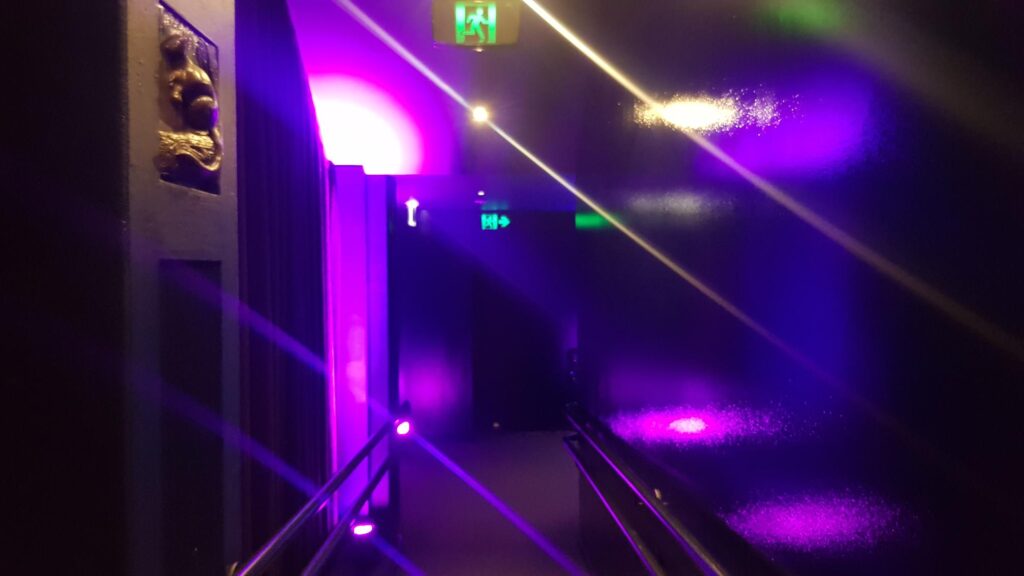
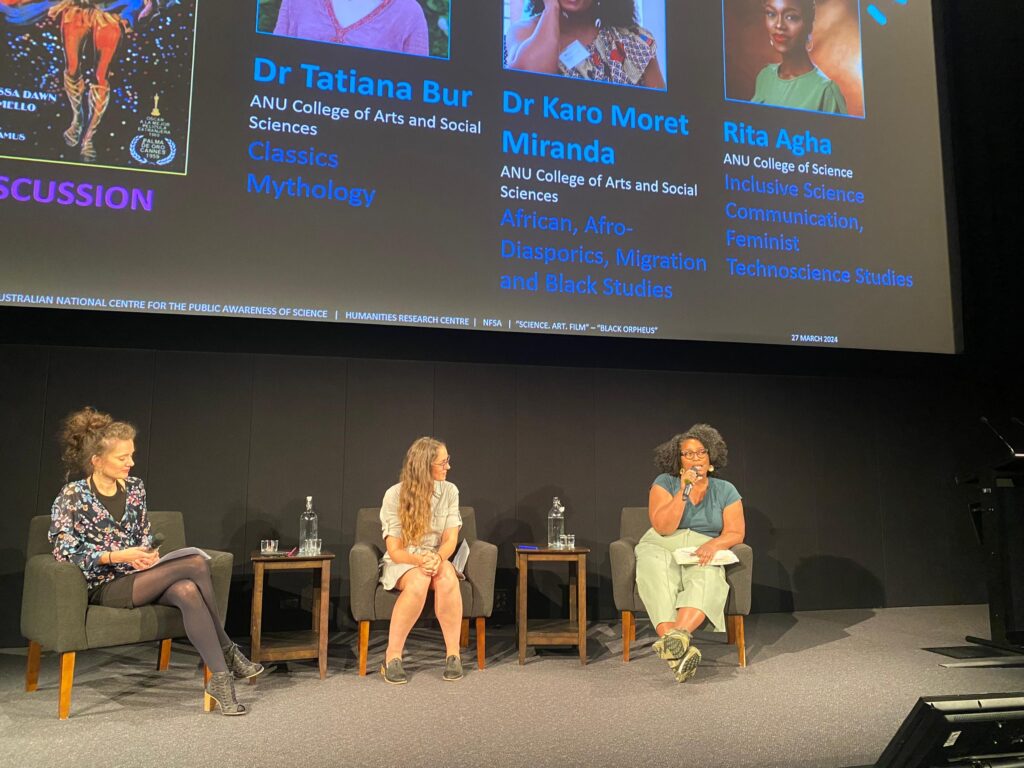
In Black Orpheus, Marcel Camus reimagines the Greek myth of Orpheus and Eurydice, setting this romantic tragedy in Rio Di Janeiro admist the festivities of Carnival. The narrative follows the complicated love triangle between Orfeu (Breno Mello), Mira (Lourdes de Oliveira) and Eurydice (Marpessa Dawn). Black Orpheus took out a raft of prestigious awards, including the Palme d’Or at the Cannes Film Festival, as well as an Academy Award and a Golden Globe for Best Foreign Film. The influential soundtrack by Brazilian composers Antônio Carlos Jobim and Luiz Bonfá is credited with popularising the bossa nova genre, now a mainstay of global jazz music. However, Black Orpheus was criticised in Brazil for its stereotyping of Brazilian culture and idealised portrayal of the favelas.
For contemporary audiences, the film raises important questions around culture and representation, with its complex intersection of a French/Italian/Brazilian co-production, set amongst the Afro-Brazilian community and based on an ancient Greek myth. How does art shape society and culture, particularly in relation to the complexities of racial identities? How does this dynamic interaction manifest itself and change over time?
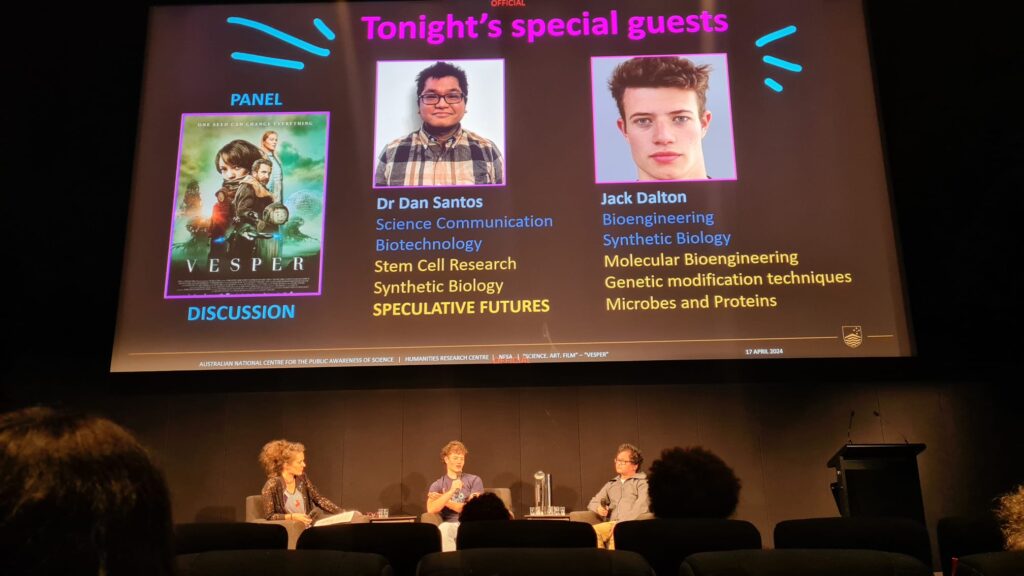
This recent science fiction release is set in the wake of an environmental catastrophe, wrought by out-of-control genetic technology, which separates survivors on either side of stark class divisions. In a post-apocalyptic world, teenage bio-hacker Vesper is presented with a chance to save her struggling community if she can find a way to cultivate a precious discovery of seeds. With surprisingly pared-back visual effects and stunning landscape cinematography, this Lithuanian/French/Belgian co-production from writer/directors Kristina Buozyte and Bruno Samperoffers audiences a tender and remarkably near-future feeling, human-scale fable.
Vesper presents both positive and negative dimensions of genetic engineering, both fulfilling and subverting genre conventions. This film also explores ‘biohacking’ – genetic engineering by lay people – and invites audiences to consider the implications for the ‘real’ world.

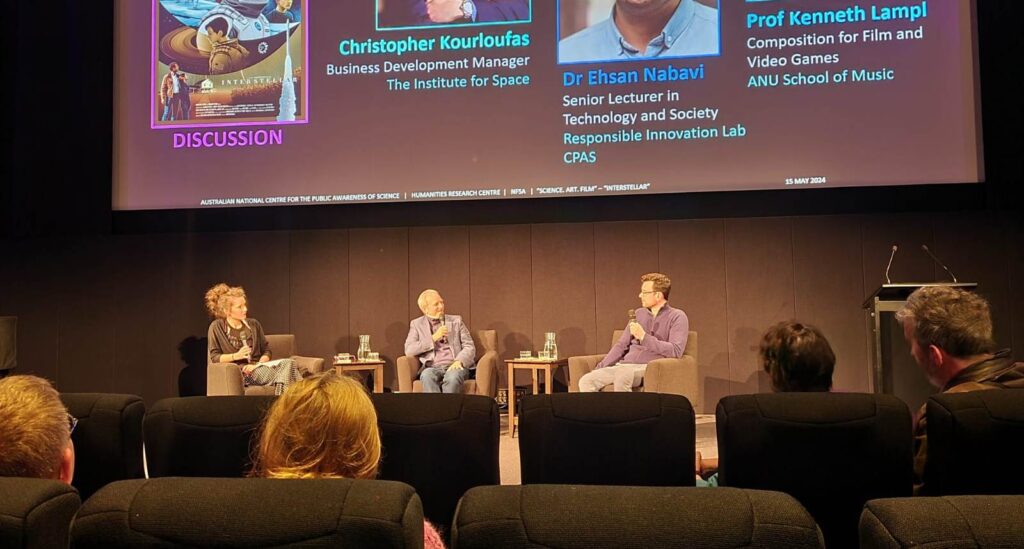
Matthew McConaughey leads as Cooper in this Christopher Nolan science fiction epic, starring alongside Anne Hathaway, Jessica Chastain, Bill Irwin, Ellen Burstyn, Michael Caine, and Matt Damon. In the wake of ecological collapse, Cooper must pilot a team in search of a suitable alternate planet if the species, and his children, are to survive. While Nolan once more delivers a compelling story illuminated by gripping performances from his ensemble cast, it is the Oscar and BAFTA-winning visual effects that make Interstellar a truly memorable film.
‘Like the great space epics of the past, Christopher Nolan’s Interstellar distils terrestrial anxieties and aspirations into a potent pop parable, a mirror of the mood down here on Earth’ – The New York Times
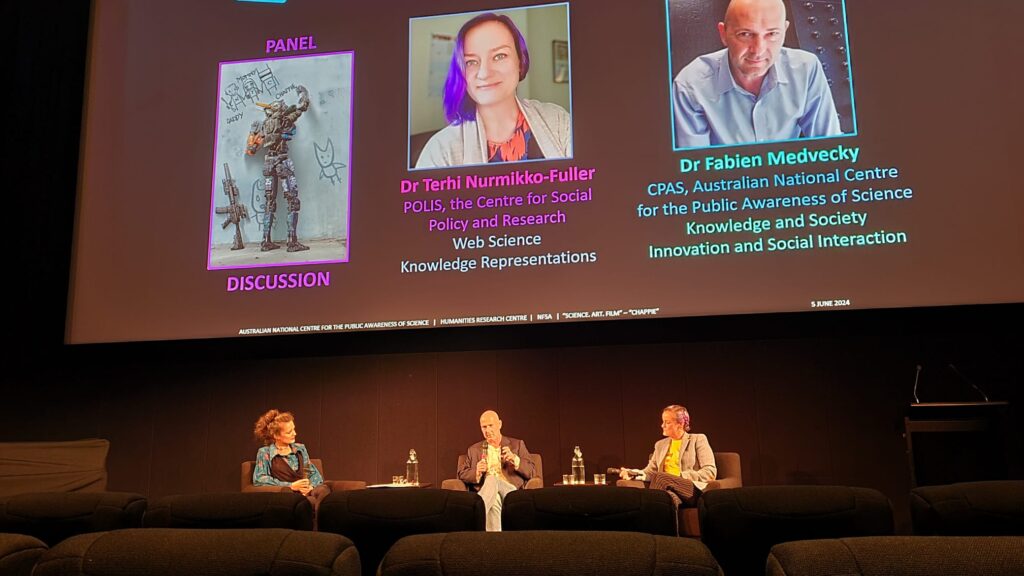
Dev Patel, Hugh Jackman, and Sigourney Weaver star in this sci-fi action drama from Neill Blomkamp, the director of District 9. The human police force in a near-future Johannesburg is largely replaced by robots, deployed to tackle soaring crime rates. When a stolen robot, dubbed Chappie, receives artificial intelligence, he develops sentience and faces a choice between sides. Are robots superior to humans? What role does humour play in this exploration of AI-driven technological progress – and is it progress after all?
‘…a broad, brash picture, which does not allow itself to get bogged down in arguing about whether or not ‘artificial intelligence’ is possible. It has subversive energy and fun’ – The Guardian




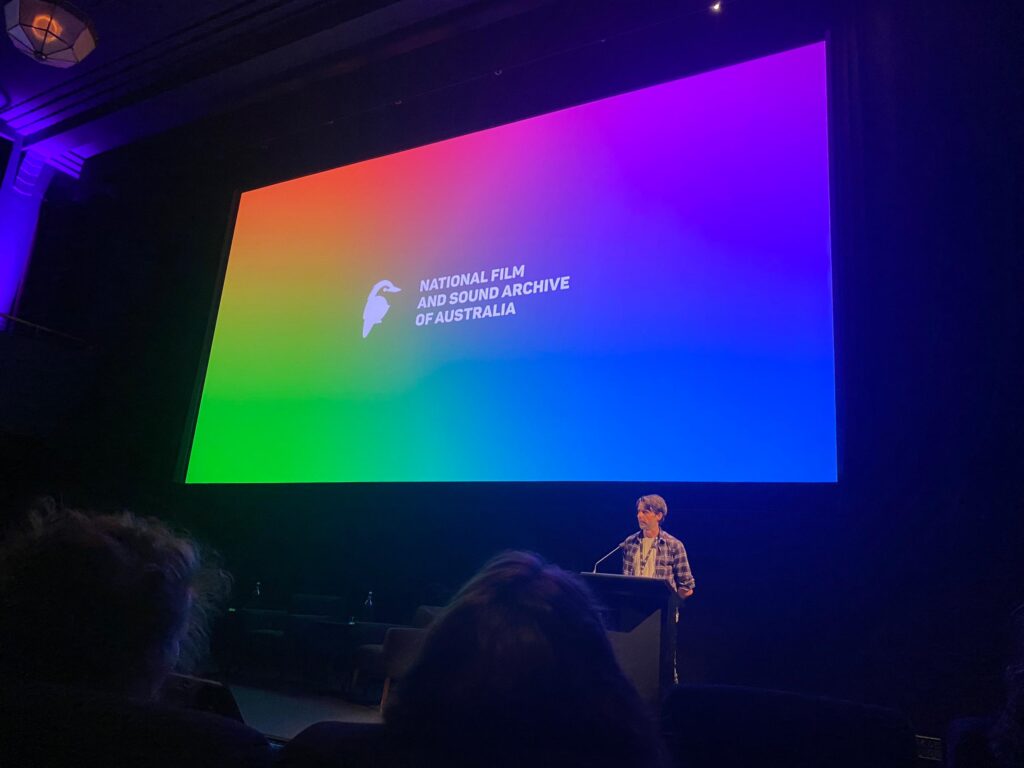
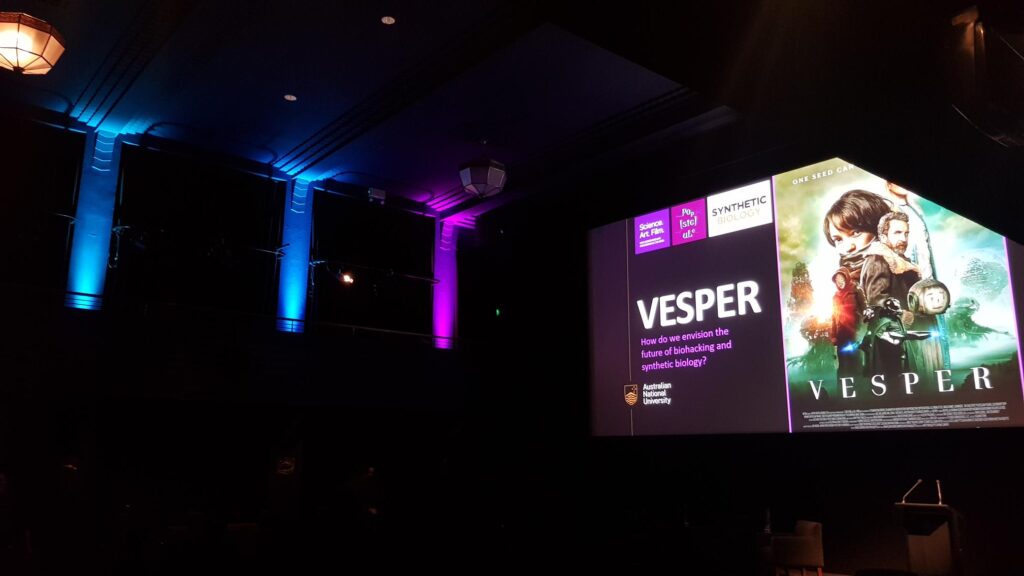
Discover what PhD candidate Rita Agha thinks about “Black Orpheus” in her short video for “Science. Art. Film.” (March 2024)
In “Black Orpheus”, Marcel Camus reimagines the Greek myth of Orpheus and Eurydice, setting this romantic tragedy in Rio Di Janeiro amidst the festivities of Carnival. The film took out a raft of prestigious awards, including the Palme d’Or at the Cannes Film Festival, as well as an Academy Award and a Golden Globe for Best Foreign Film. The influential soundtrack by Brazilian composers Antônio Carlos Jobim and Luiz Bonfá is credited with popularising the bossa nova genre, now a mainstay of global jazz music. However, “Black Orpheus” was criticised in Brazil for its stereotyping of Brazilian culture and idealised portrayal of the favelas. For contemporary audiences, the film raises important questions around culture and representation, with its complex intersection of a French/Italian/Brazilian co-production, set amongst the Afro-Brazilian community and based on an ancient Greek myth. How does art shape society and culture, particularly in relation to the complexities of racial identities? How does this dynamic interaction manifest itself and change over time?
Find out more about these and other questions raised by Black Orpheus in this short clip by Rita Agha. Rita Agha is a PhD student and researcher with the UNESCO Chair in Science Communication for Public Good, located at the Australian National University’s Centre for the Public Awareness of Science. Her research interests are in areas of sexual and reproductive healthcare, feminist science and technology studies, and the sociology of communication in Africa.
While you wait for the next film… explore our 2023 SCIENCE. ART. FILM. events!
This was our “Science. Art. Film.” series in Semester 2 (2023)! – We travelled from the technological future past of Blade Runner to comic scientists in filmic comics adaptations to synthetic biology – thanks to our amazing speakers, our wonderful audiences and the fantastic team of the National Film and Sound Archive !!!
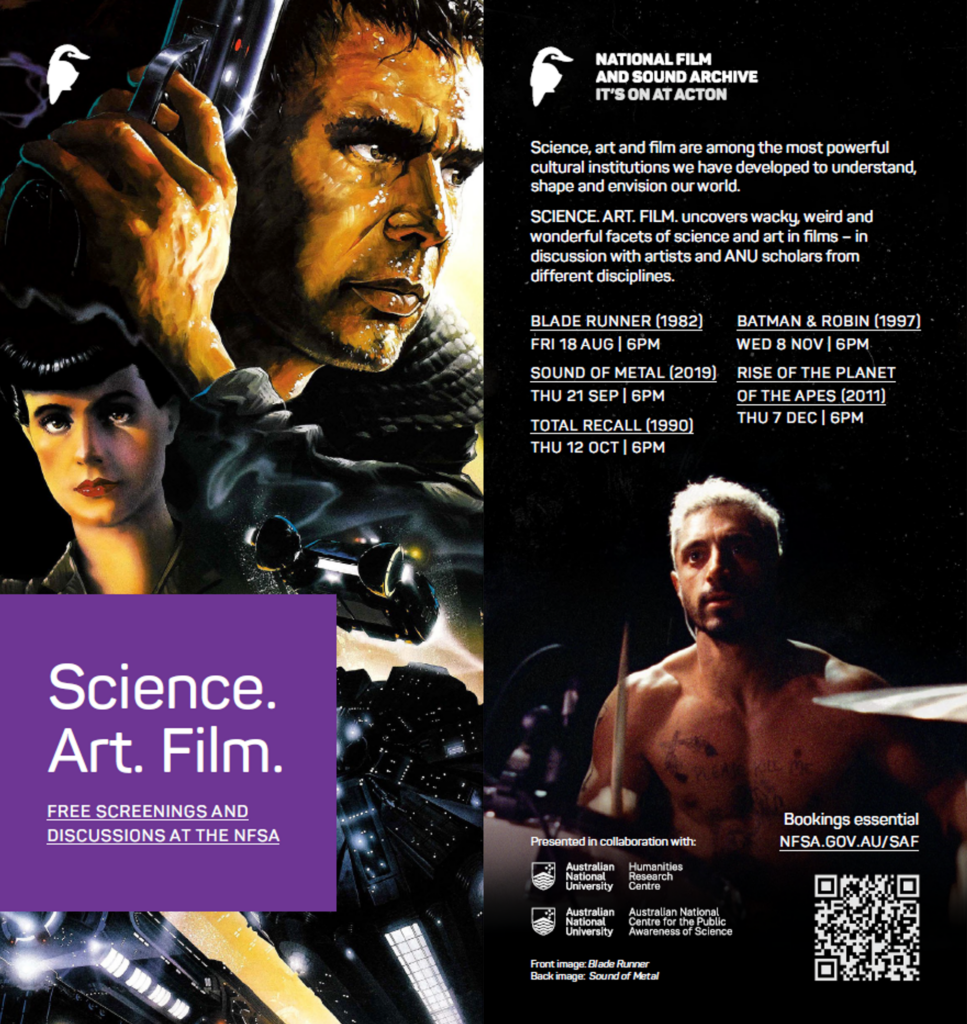

What is in a memory? Why do we feel emotions? How do they relate to our sense of identity, self, and responsibility? Blade Runner (1982) encourages us to reflect on how these questions on memories, emotions, and selfhood do not only define what it means to be human, but also how we relate to those who have similar capacities, including those who do not have an organic body. The film will provoke conversations on how the cognitive and emotive capacities of replicants, human-like androids with superior strength and a similar level of intelligence to humans, could influence how we perceive them and advocate for their rights and liberties. The screening will be preceded by a brief introduction on robots in popular culture and on ethical issues raised by embodied artificial intelligence. After the screening, there will be a panel discussion involving scientists and ethicists. So come, and join us in exploring the meaning of memories, and how they relate to life, love, and liberty, through this classic science fiction masterpiece.
‘A masterpiece of dystopian science fiction on film.’ – Daily Telegraph
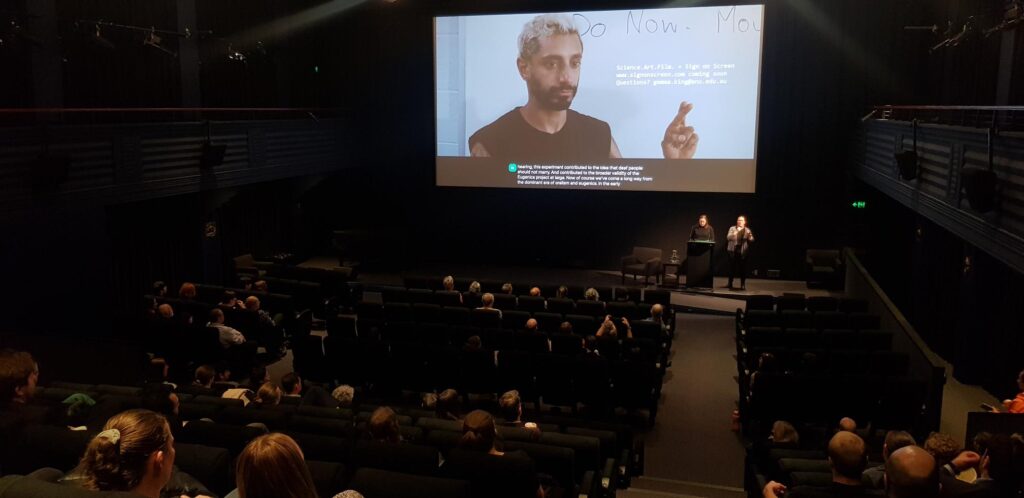
Why are so many films about deafness also about music? Why do cinema and television so often represent hearing loss as a tragedy, and cochlear implants as a magical ‘cure’ for deafness? In some ways, the 2019 American Sign Language-film Sound of Metalrepeats these patterns. In others, it subverts them, challenging hearing audiences to think differently about how deafness might impact our sense of self and our relationships with others, and how technology might intersect with them.
Join us to learn not about the “science of deafness”, which has a long and exclusionary history among hearing researchers, but about cochlear implants and the complicated place they hold in Deaf Culture, as discussed by an all-Deaf panel.
This event is a part of the Sign on Screen project, supported by the Australian Research Council at the Australian National University and the National Film and Sound Archive.
‘One of the film’s best features is its refusal to indulge in triumph-of-the-human-spirit clichés that so often weigh down disability narratives.’ –The Wrap
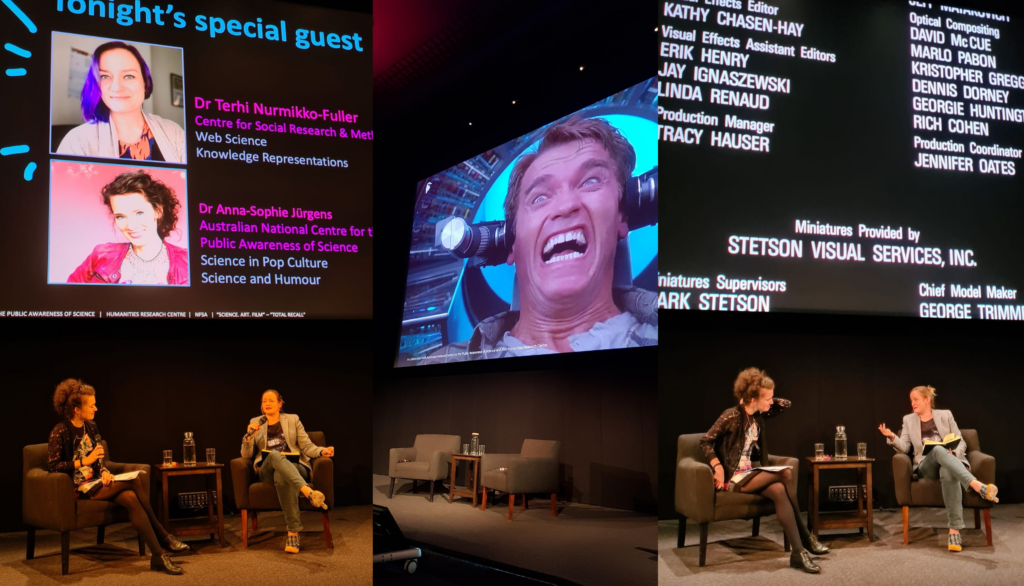
Total Recall(1990), hailed as one of the best science fiction films of all times, raises many questions about technology, including: What is real and what is fantasy in inner and outer techno-space? How can we understand this science fiction film as a place to test theories about how far we can go with the idea that technology is influenced by social pressures and desires – and to what extent are our expectations changed by the influence of technology? In what ways have science fiction motifs inspired ‘real life’ research? And why has this film actually become a cult classic? Find out about all of this and more in our panel discussion!
‘The fierce and unrelenting pace, accompanied by a tongue-in-cheek strain of humour in the roughhouse screenplay, keeps the film moving like a juggernaut.’ – Variety
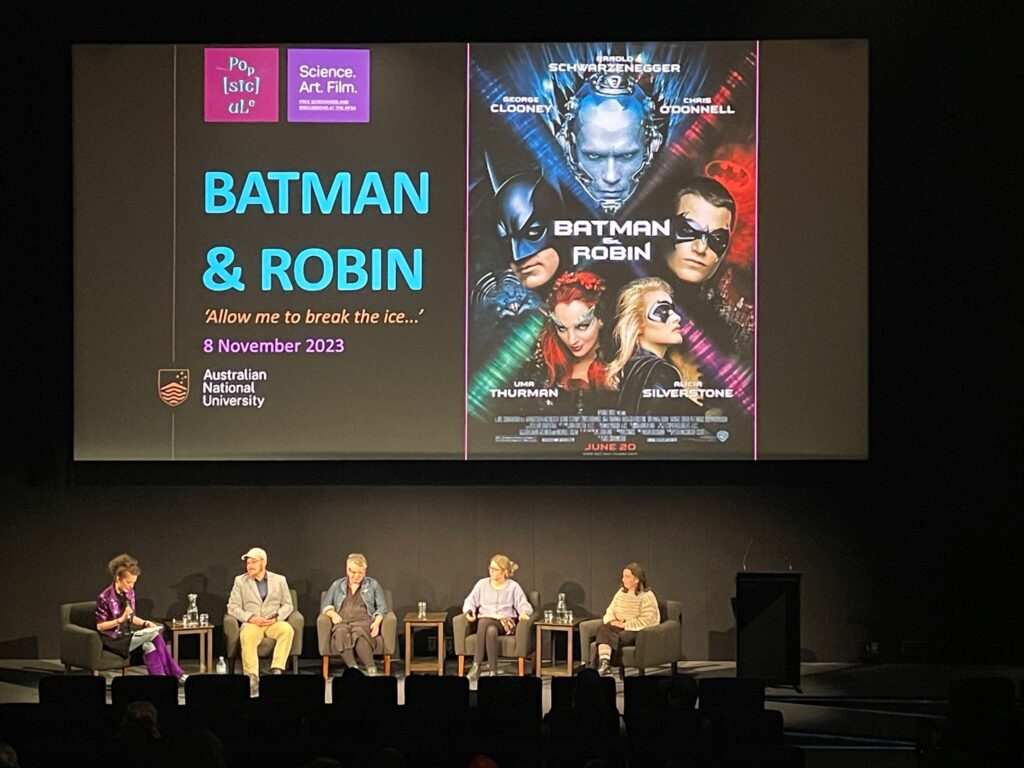
The DC universe is populated with scientists. From Harley Quinn to Swamp Thing, scientists appear as troubled and troubling vaude-villains, as suspicious Frankensteinian creature-creators and enigmatic alchemists engaging in violent delights. Joel Schumacher’s 1997 American superhero film Batman & Robin features two spectacular examples: Poison Ivy (Uma Thurman) and Mr Freeze (Arnold Schwarzenegger) – and thus science galore! This evening is not only about the biologist behind Poison Ivy and the cryogenicist behind Freeze, but also about why they are so insanely, deliciously ridiculous and (thus) worth a closer look from both a science and humour perspective. The introduction to the film will introduce you to the research on science in comics and popular film being undertaken at the ANU and take you on a journey through the mesmerising scientist narratives of the DC universe. After the screening, there will be plenty of time for your thoughts, comments and questions about the film. There is good reason to expect a wildly entertaining and amusing film night and discussion!
‘An amiable, almost farcical Batman episode, with George in Nespressso mode.’ – The Guardian
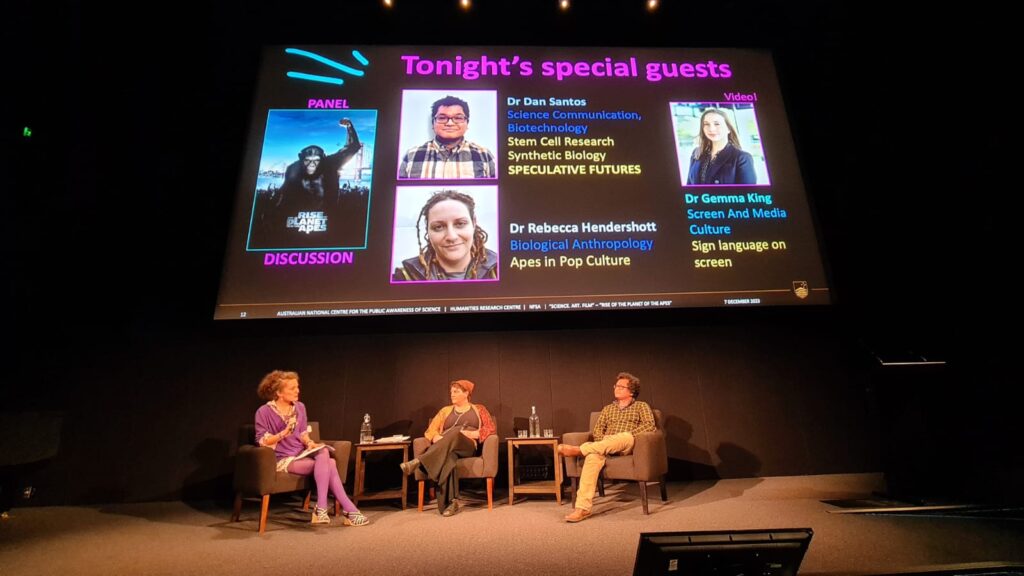
‘We gave her what we call ALZ-112, a gene therapy that allows the brain to create its own cells in order to repair itself. In biology, this is called neurogenesis. Here at GenSys, we call it a cure to Alzheimer’s.’ Cures and enhancement; natural and artificial. Modern biotechnologies are often framed as urgent solutions to pressing problems. And yet, there are always risks – of unexpected consequences and transgressed boundaries. Rise of the Planet of the Apes (2011) explores these themes and many more. It stars James Franco, Frieda Pinto and the inimitable Andy Serkis, and is the first film in a trilogy. Here, the desire to develop biomedical solutions mixes uneasily with species enhancement, and the film raises a host of troubling questions about control and order, our relations with and responsibilities to non-human species, and ultimately our place in the natural world.
‘Rise of the Planet of the Apes is spectacle with a kick: the transcendence of the normal in creatures so like ourselves is both an entertainment and a needling rebuke to human vanity’ – The New Yorker
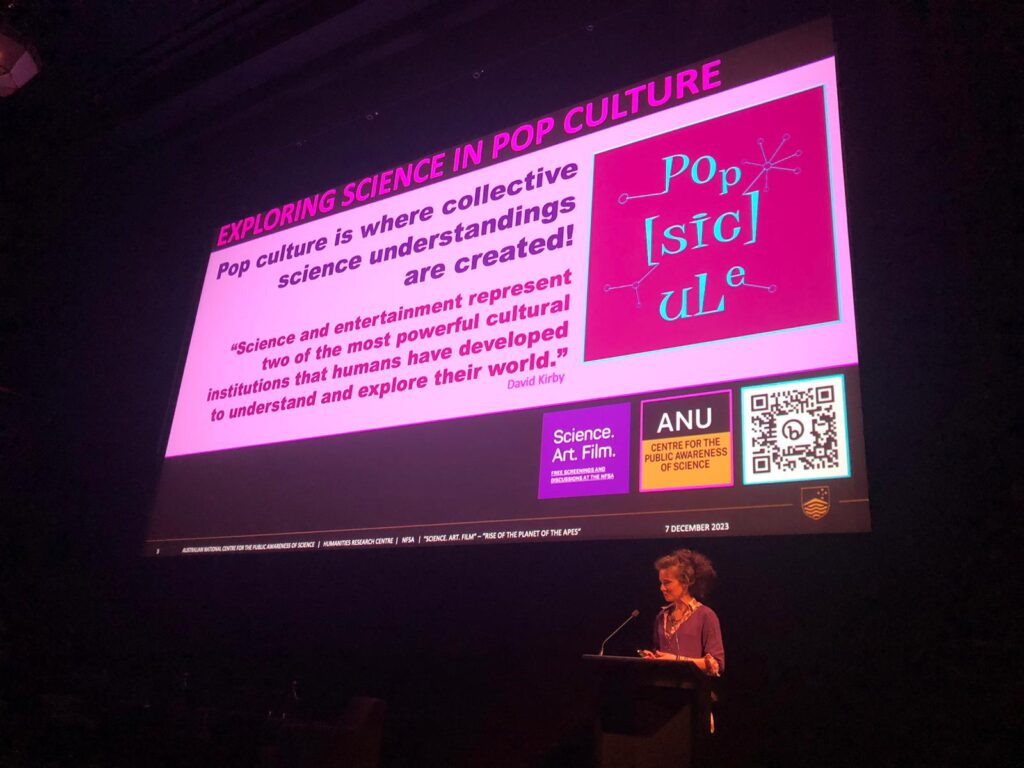
Science, art and film are among the most powerful cultural institutions we have developed to understand, shape and envision our world.
Screening monthly for FREE at Arc Cinema, SCIENCE. ART. FILM. is a new series that uncovers wacky, weird and wonderful facets of science and art in films.
Films are screened in discussion with artists and ANU scholars from different disciplines.
Presented by the National Film and Sound Archive, Australian National Centre for the Public Awareness of Science and ANU Humanities Research Centre.
Did you miss our film night and discussion about “Rise of the Planet of the Apes”, but would like to find out more? Our video with Dr Gemma King provides thought-provoking insights into the science-signed language relationship explored in the film – and beyond!
This was our “Science. Art. Film.” series in Semester 1 (2023)! – We travelled from comic zombies to responsible innovation to synthetic biology – thanks to our fantastic speakers, audiences and NFSA staff!!!
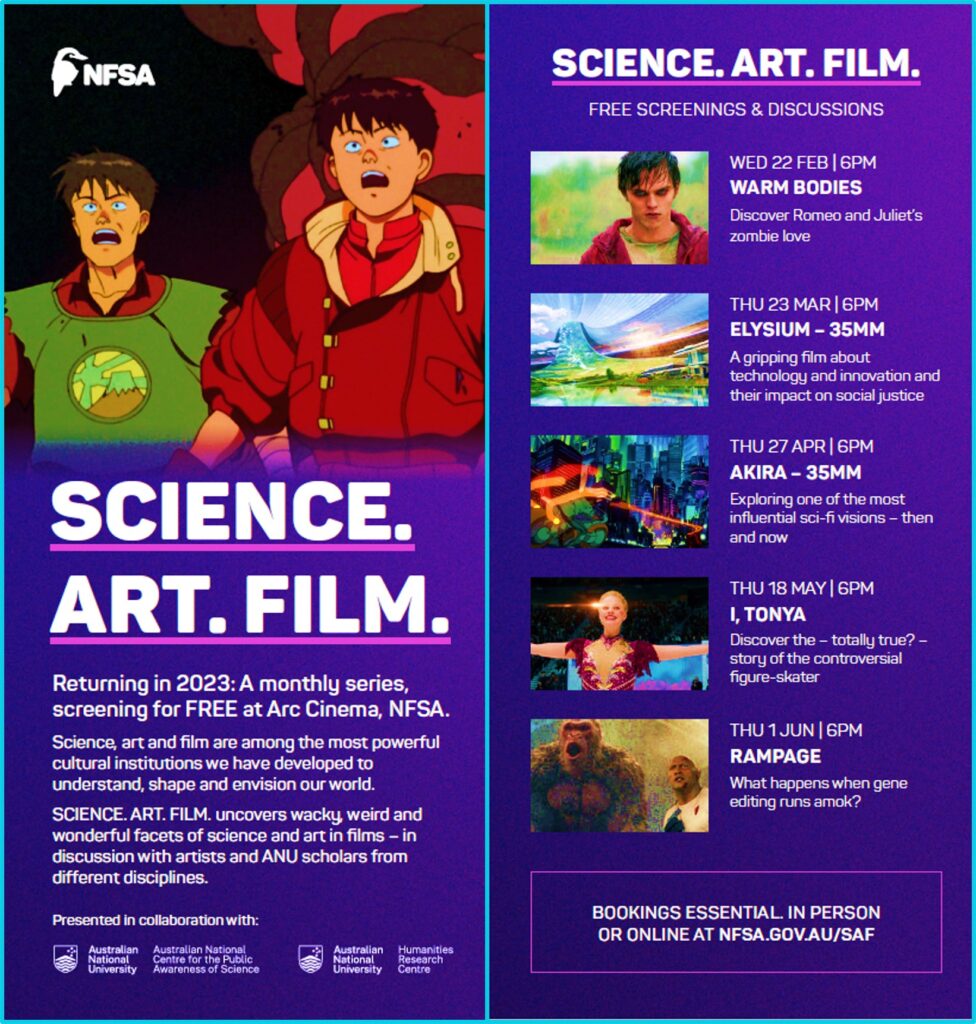
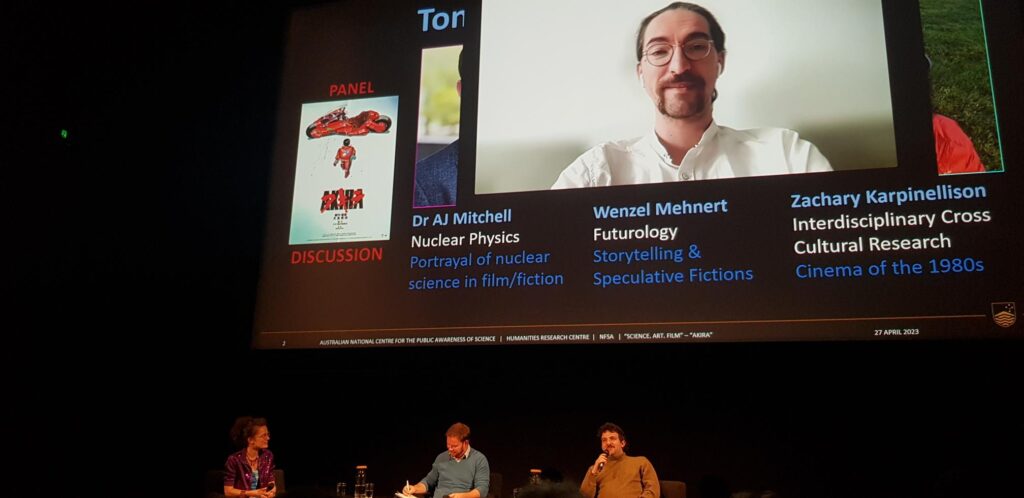
AKIRA provides unforgettable glimpses into the dystopian metropolis of Neo-Tokyo, the lives of futuristic high-speed gangs and the psychic and transcendent powers that one of the protagonists develops. The film revolves around nuclear-energy-caused telekinesis, destruction, rebirth, technological revolution – and much more.
What do technology and culture scholars today think about the kinetic energy of the iconic animated film and its vision of future technology and science?
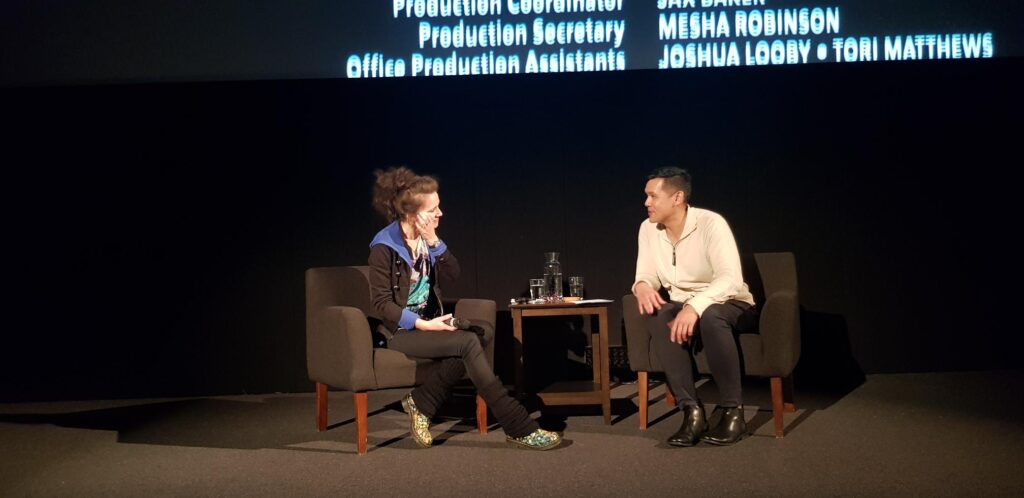
Discover the – totally true? – story of one of the most athletic and controversial female figure-skaters in the United States, Tonya Harding, and the conspiracy regarding the 1994 attack on rival skater Nancy Kerrigan. In conversation with an expert in screendance and figureskating, this evening is about the power of female bodies on ice stages, bodily humour and identity performance. How can we capture the humour of this tragic and turbulent story of ambition – and is there such a thing as physical ice comedy? Enjoy the chill!
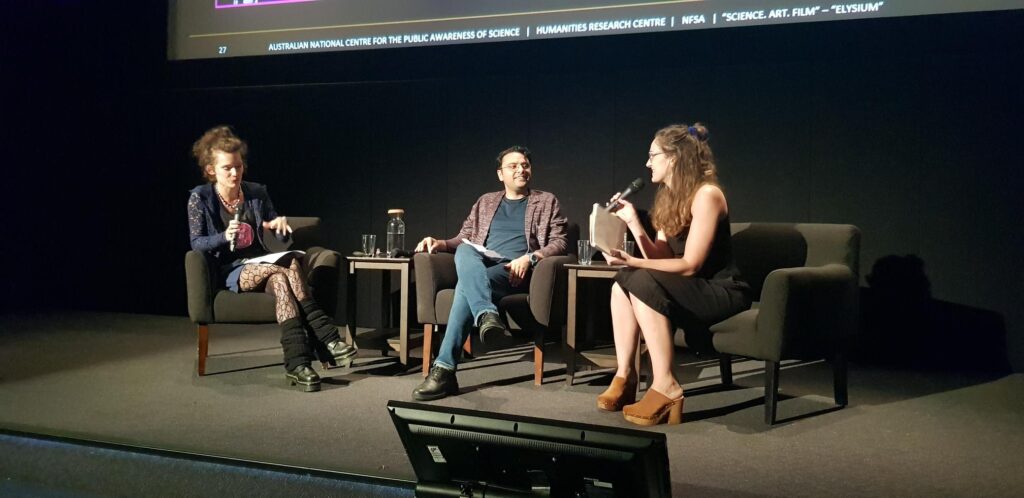
Elysium is a thought-provoking science-fiction film that explores the consequences of technology, innovation and social injustice. Set in a dystopian future where technology has created a society divided by class and wealth, the movie follows a factory worker named Max (Matt Damon) as he fights to bridge the gap between the privileged elite and the struggling masses. With powerful performances from Damon and Jodie Foster, and a story that will keep you on the edge of your seat, Elysium is a must-see for anyone interested in the impact of technology on society and the importance of responsible innovation.
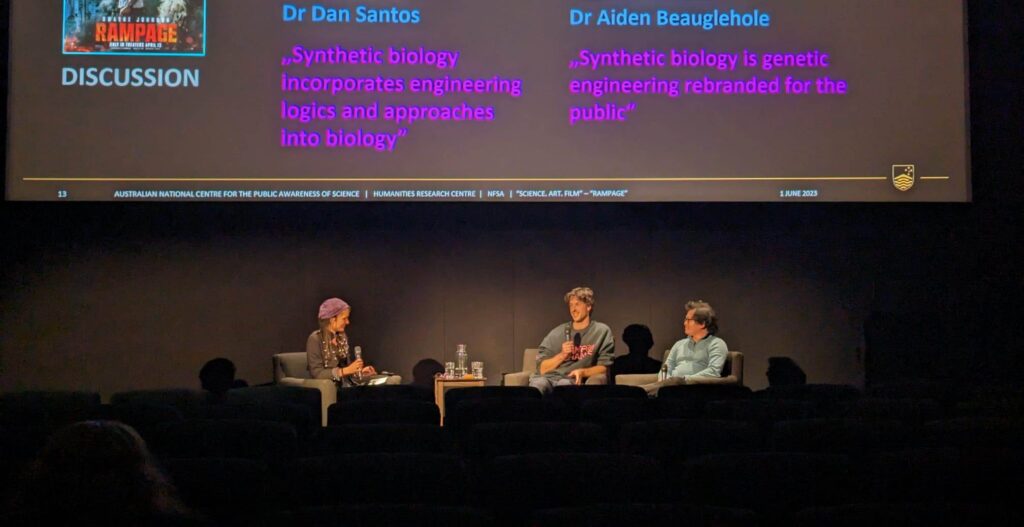
What happens when gene editing runs amok? The 2018 American sci-fi action-adventure monster movie Rampage – adapted from the video game series and starring Dwayne Johnson – offers a scenario where mutated animals destroy Chicago. Almost. The film explores contemporary advances in biotechnology – specifically around CRISPR-based gene editing and synthetic biology – and offers plenty of thought-provoking questions about the future of these newfound possibilities to engineer life. Such questions revolve around: the potential for both benefit and harm and the trade-offs involved; the role of power, property and private corporations; and the differences, if any, between biomedical and environmental applications of emerging biotechnologies.

Warm Bodies is a 2013 zombie romantic comedy film directed by Jonathan Levine and based on the 2010 novel by Isaac Marion. The film loosely traces the story of William Shakespeare’s 16th century tragedy, Romeo and Juliet – with a twist Romeo is ‘R’ (Nicholas Hoult), a quite literally) heartless zombie. On meeting Julie (Teresa Palmer) – a living human – R’s heart begins to change. The film explores adaptation and genre-mashing while also offering a unique representation of a potent symbol in western culture: the heart. Throughout the centuries, literary, cultural and medical discourse has reinforced the heart as a critical organ, a sign of life, a symbol of identity, humanity, and a means of representing the self. The heart is central to human ontology; a vital organ and a pervasive metaphor.
This was our “Science. Art. Film.” series in Semester 1 (2023)! – We travelled from comic zombies to responsible innovation to synthetic biology – thanks to our fantastic speakers, audiences and NFSA staff!!!
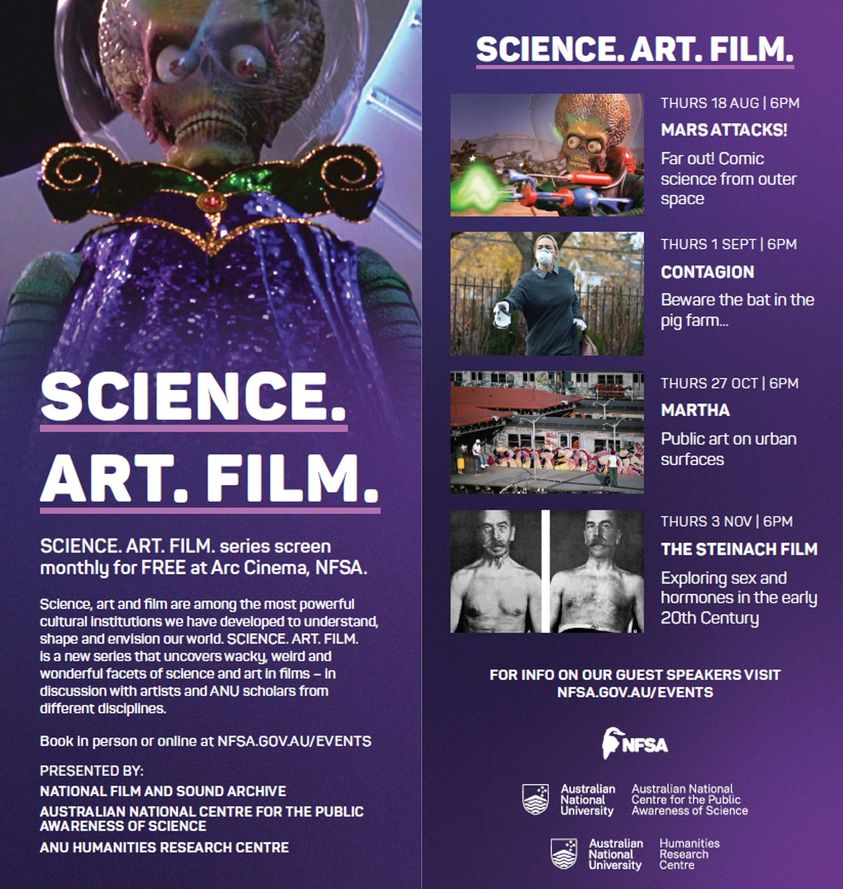
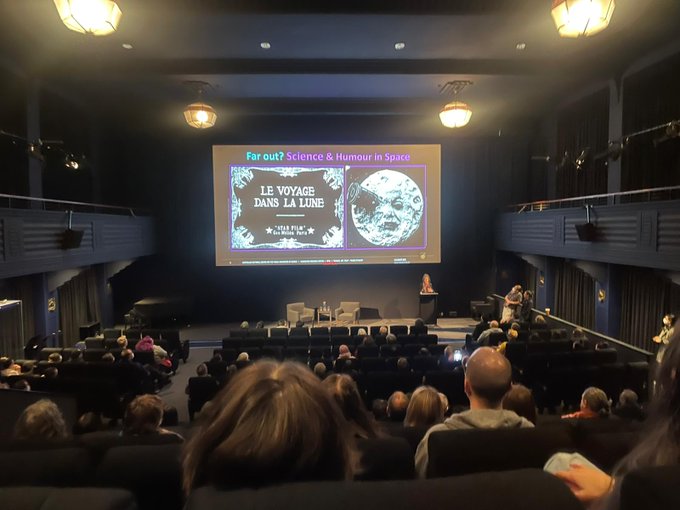
Far out! Comic Science from Outer Space Have you always wondered what an alien scientist looks like and what their science might be? An astronomer and a pop culture scholar interested in the cultural meanings of science will introduce you to the spaced-out science from outer space in Tim Burton’s Mars Attacks! The discussion following the film will look at the popular image of science in space cinema, our cultural fascination with clowns and scientists in space stories, and why it matters to study all this.

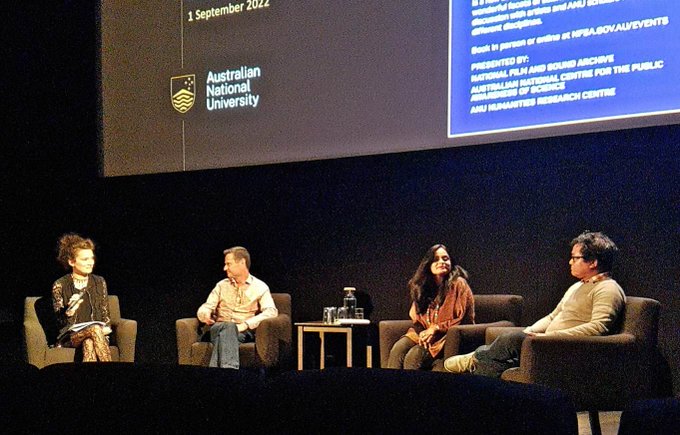
Beware the bat in the pig farm…
While we have all certainly had our fill of viruses in our everyday lives over the past few years, there has not been enough cross-disciplinary, science-based debate about our cultural fantasies about infectious diseases and why they play a significant role in our current pandemic. Together with ANU virologist Professor David Tscharke and Professor Meru Sheel (University of Sydney) we will watch “Contagion” and discuss both the actual science and the general “mood” or feel of pandemic times – and what it means that films about viruses have an uncanny attraction.

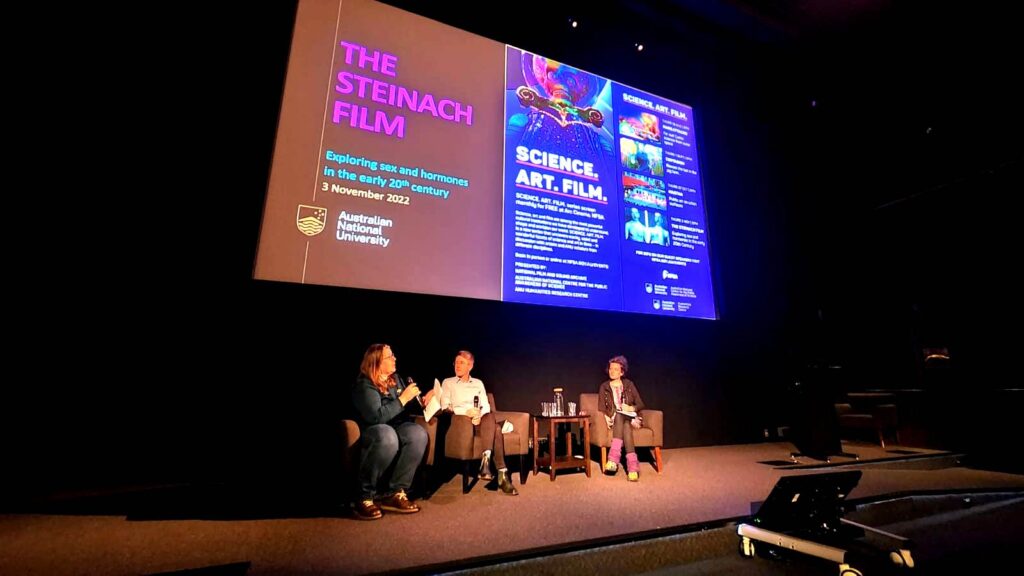
The Steinach-Film is an innovative 1922 silent documentary about the discovery and significance of the sex hormones by endocrinologist Professor Eugen Steinach’s team in 1910s Vienna. This German-Austrian co-production was also produced in an international version, and only a few copies exist around the world today, including the one to be screened from the NFSA collection. It begins by exploring themes of sexual difference in animals and humans, before delving into scientific experiments on laboratory rats undertaken by Steinach’s team, seeking to “feminize” and “masculinize” animals via castration, testicle and ovary implantations, and hormone manipulation. The film then explores possible applications in humans, showing how scientists at the start of the twentieth century were starting to explore intersex, trans, and same-sex bodies and identities, as well as the potential for hormone research to “rejuvenate” the ageing and ill.
Please note that the film includes graphic depictions of surgical procedures. It also shows naked human bodies as scientific objects in ways that today would no longer be considered appropriate. The involvement of these individuals, however, was voluntary and conducted in the interest of increasing scientific knowledge about sexual and gender diversity.
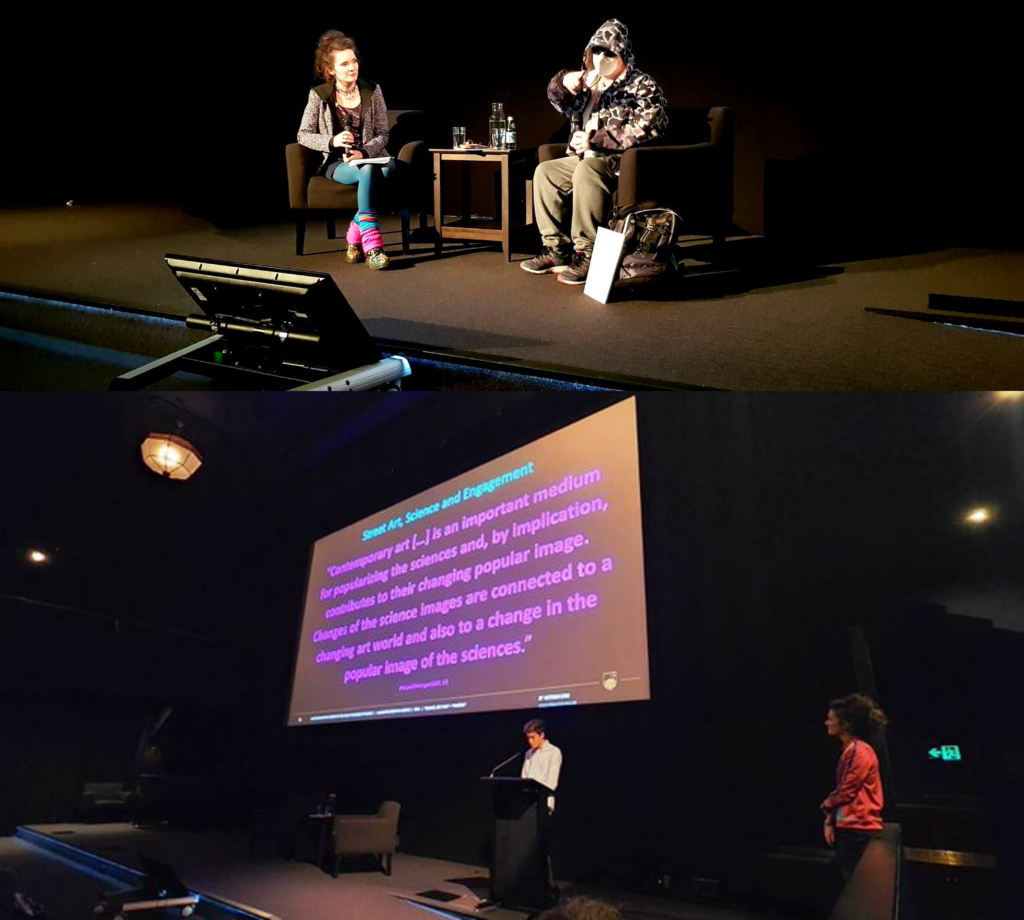
The origins of graffiti and street art are commonly traced back to 1970s New York, the decade’s anti-commercialism and its subcultures – and the 2019 film Martha: A Picture Story offers fascinating insights into the genesis of art in urban environments. Such early, subversive expressions of public art included graffiti on the sides of subways, walls and public buildings.
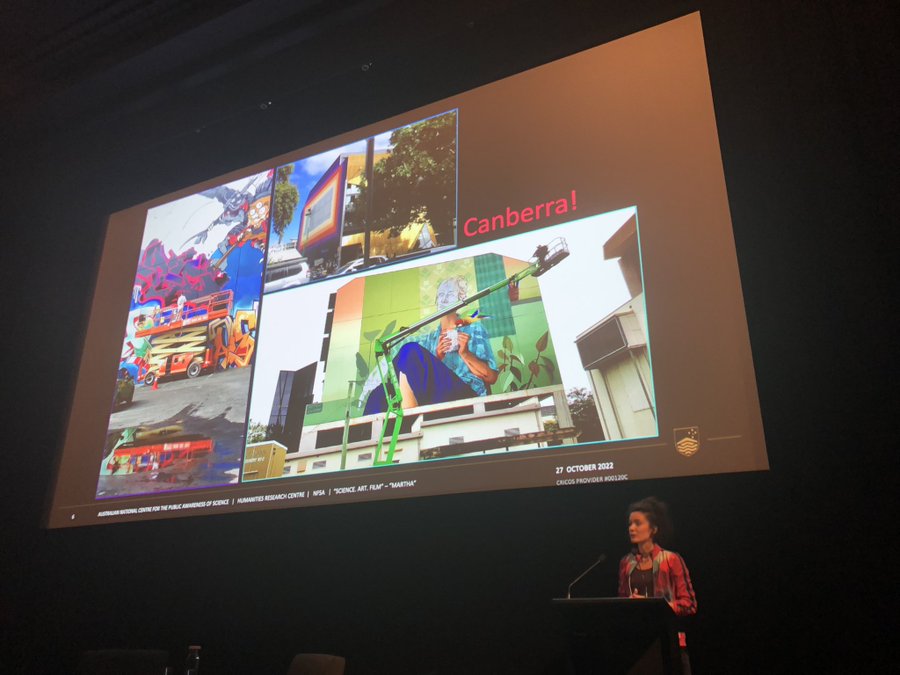
While illegal artworks continue to populate urban spaces, there is a trend towards legitimising and celebrating urban artists as promoters of community connection and contemporary placemaking. In many cities, e.g. in Australia, street art has become a very popular form of public art.
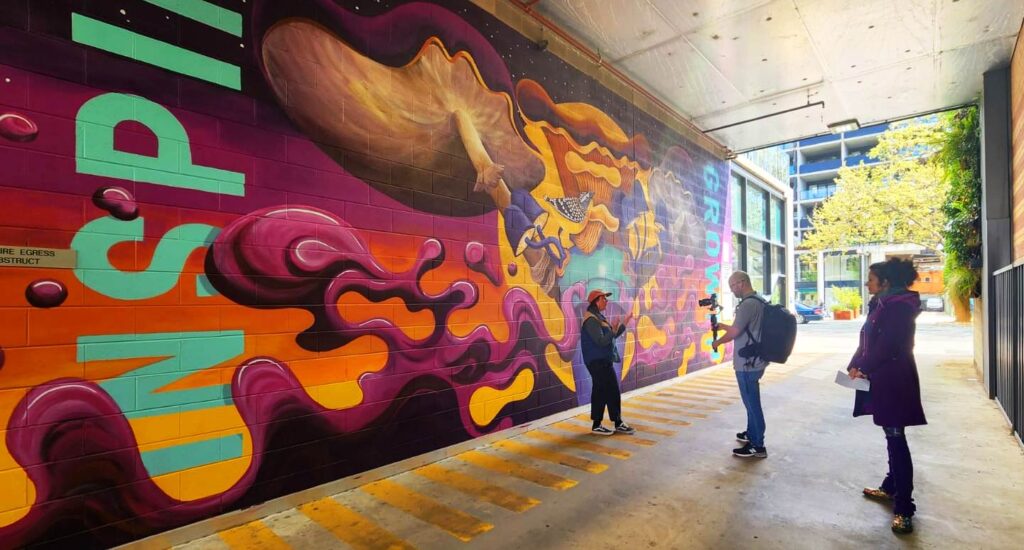
This evening brought together a range of perspectives – including those of artists who transform streetscapes and neighbourhoods with their artwork, and researchers studying artistic expressions on urban surfaces – to talk about the evolution and change of graffiti and street art over time internationally and in Canberra.
Discover this POPSICULE and w/k video on “Street Art, Science and Engagement” by Abigail Hils with Anna-Sophie Jürgens – In collaboration with the “Science. Art. Film.” series – Proudly hosted by CPAS.
For our “Martha” event, We interviewed Bohie, an artist based in a beautiful small town of Braidwood, located just an hour from Canberra, the South Coast and the Snowy Mountains of New South Wales. She creates murals, art, design, and creative workshopping experiences that explore wonder and connection to each other and to the natural world. Bohie works alongside educational institutions, government agencies, community focus groups and stewards of the natural world to design change-making campaigns for each creative project.
To learn more about Bohie: www.bohie.com.au
Presented by the National Film and Sound Archive, the Australian National Centre for the Public Awareness of Science, and the ANU Humanities Research Centre
